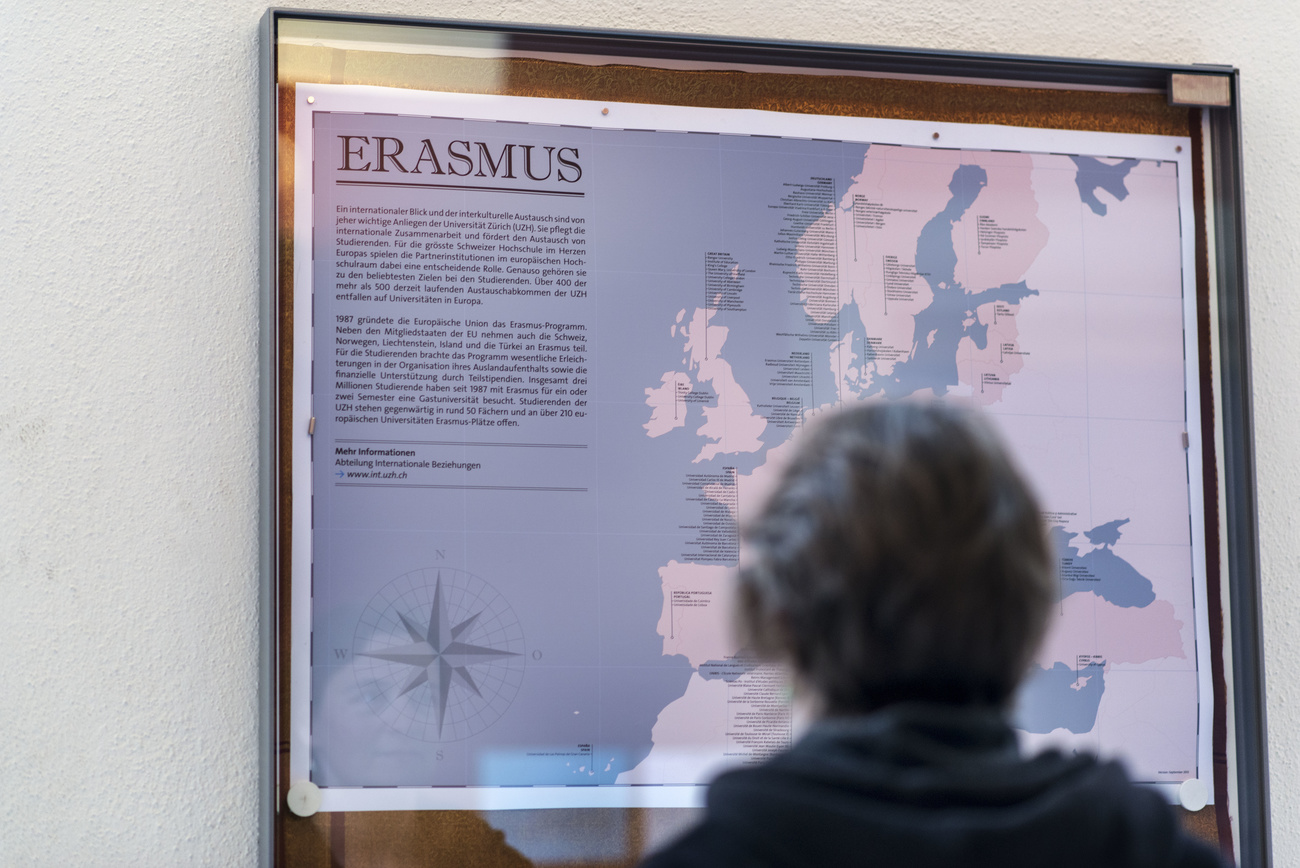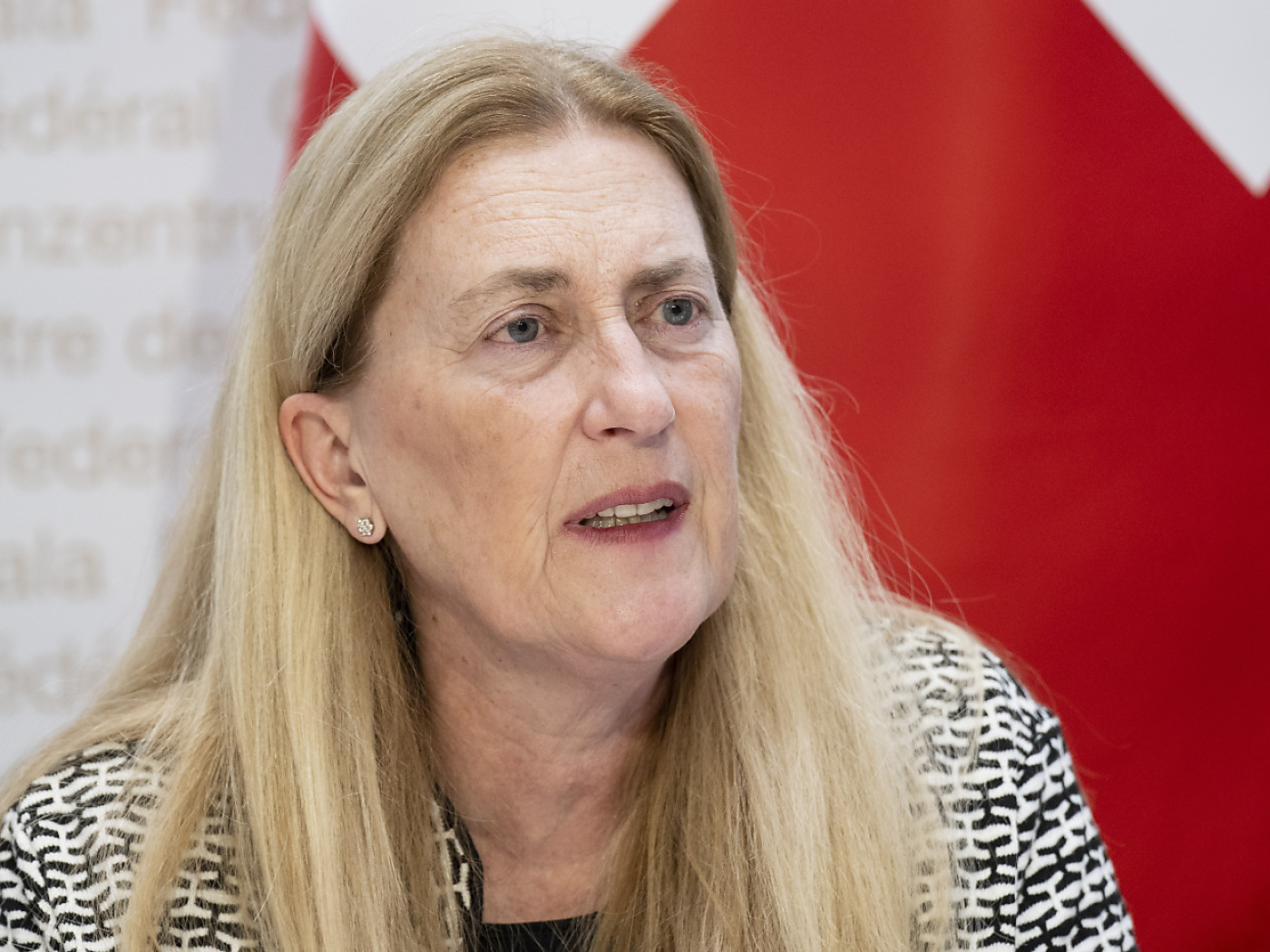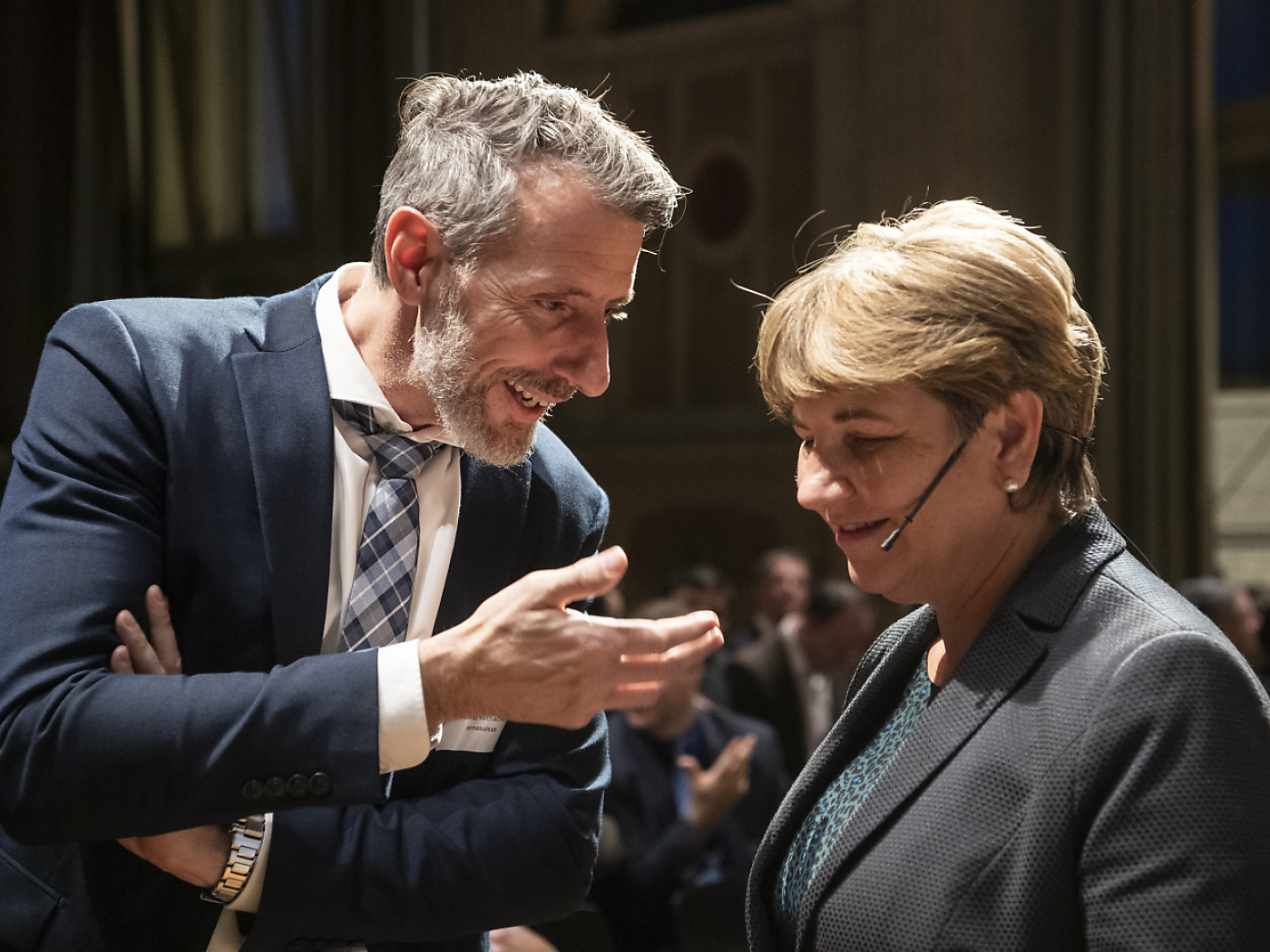Horizon Europe and Erasmus+: ‘Switzerland must come on board in 2024’

Recent Swiss-EU developments suggest that an end to Switzerland’s exclusion from key European research and education programmes may be discussed next year, says Luciana Vaccaro, head of swissuniversities, the umbrella group of Swiss universities.
“The two programmes [Horizon Europe and Erasmus+] finish at the end of 2027. If we want to be part of the discussions which will build the research and training programme after this date, we really need to be able to join the boat next year,” the president of swissuniversities told the Keystone-SDA news agency on Monday.
She was interviewed in Delémont ahead of the 25th anniversary of the University of Applied Sciences of Western Switzerland (HES-SO) this Tuesday. She has been rector of the HES-SO for the past ten years.
+ Swiss government decides to draw up negotiating mandate with EU
On November 8, the Federal Council announced that it wanted to draw up a new negotiating mandate with the EU by the end of the year. Luciana Vaccaro hopes that talks with Brussels on the institutional level can be accompanied by a resumption of discussions on European research and training programmes.
“The European Commission has certainly made it clear to us on several occasions that it would rather wait for the political solution. But we have now received some signals indicating that a resumption of negotiations (on Horizon Europe and Erasmus+) could be possible in parallel,” said Vaccaro.
+ Swiss universities gain a steady hand in uncertain times
During his visit last week to Switzerland, French President Emmanuel Macron stressed that “France supports the European Commission in its objective to move forward”. He also said he was “keen that discussions on research and higher education can continue to move forward”.
The scientific community suffers from Swiss exclusion from these key European research and education schemes, said Vaccaro.
In May 2021, after seven years of negotiations, Switzerland pulled out of talks with the EU to renew dozens of bilateral agreements on issues like migration and trade. As a result, the European Commission decided to downgrade Switzerland to a non-associated third country in the Horizon Europe programme shortly after.
Swiss researchers cannot coordinate Horizon Europe projects and do not have access to European excellence grants, such as the Marie Sklodowska-Curie funds or those of the European Research Council (ERC). Also, Swiss small and medium-sized enterprises and start-ups are excluded from EU innovation programmes, said Vaccaro.
As regards Erasmus+, from which Bern has been excluded since 2013, the replacement solution developed by the Swiss federal authorities only concerns the aspect of mobility.
Switzerland have long underestimated the consequences of these changes, according to Vaccaro. “We realise today that our means were not in line with our goals: thus, the mobility objective set by the Federal Council, i.e. 20% of students, has not been achieved.”
In addition, Bern is not part of the Erasmus+ programme, the educational collaboration programmes. It is also not a full member, but only an associate, of the alliances of European universities, an initiative by Emmanuel Macron aimed at setting up a new training and research space in Europe.
This news story has been written and carefully fact-checked by an external editorial team. At SWI swissinfo.ch we select the most relevant news for an international audience and use automatic translation tools such as DeepL to translate it into English. Providing you with automatically translated news gives us the time to write more in-depth articles. You can find them here.
If you want to know more about how we work, have a look here, and if you have feedback on this news story please write to english@swissinfo.ch.

In compliance with the JTI standards
More: SWI swissinfo.ch certified by the Journalism Trust Initiative

















You can find an overview of ongoing debates with our journalists here . Please join us!
If you want to start a conversation about a topic raised in this article or want to report factual errors, email us at english@swissinfo.ch.